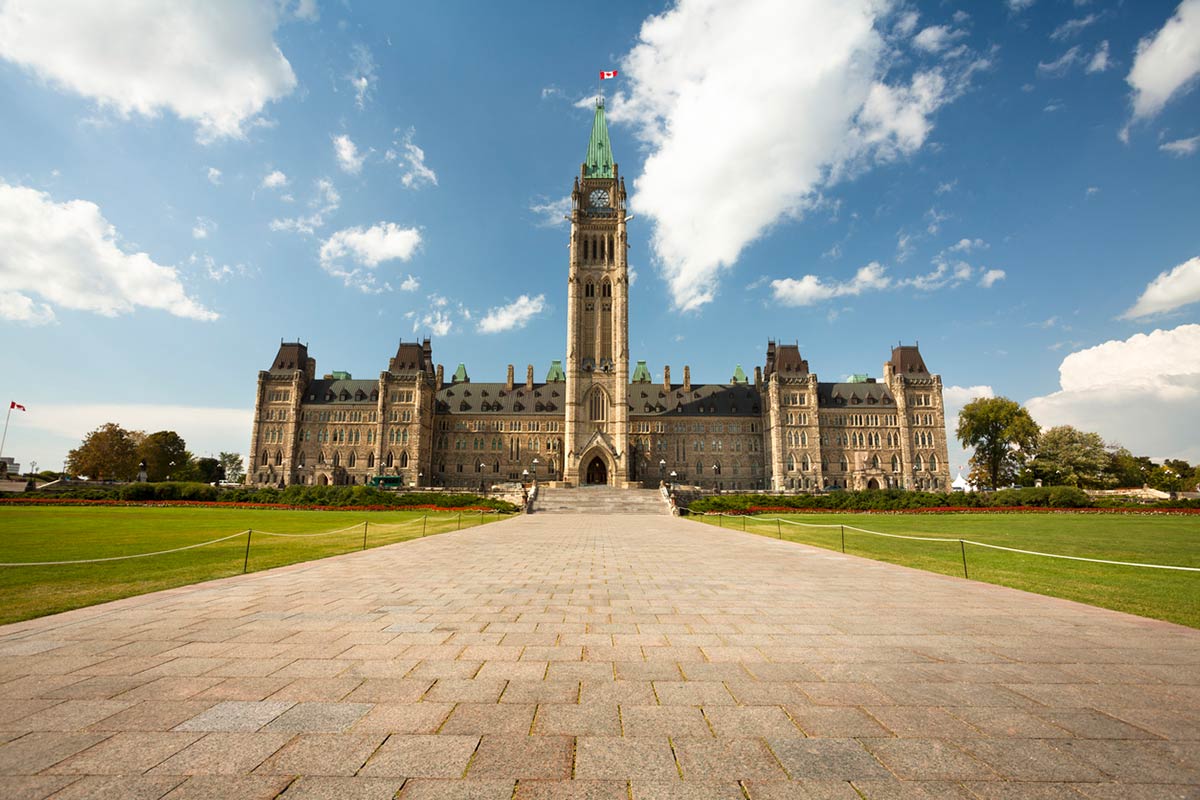
Note on the November 23rd Speech from the Throne
The first days of the 44th Parliament began through a series of well-established steps and procedures. On Tuesday, November 22, Liberal MP Anthony Rota was elected Speaker of the House of Commons where he will once again oversee a fractious minority Parliament. The following day in the Senate, Governor General Mary Simon delivered the Liberal Government’s Speech from the Throne. Titled “Building a resilient economy: a cleaner & healthier future for our kids”, the Speech begins the first session of the new Parliament and provides a roadmap for the government’s legislative and political priorities during the initial phase of its new mandate. Making history as the first Indigenous Governor General to deliver a Throne Speech, Simon spoke at times in English, French and Inuktitut. The Prime Minister’s Office’s also released the Prime Minister’s Statement on the Speech in all three languages.
Speech from the Throne was short and focused on key Liberal campaign commitments, though with little new information on how they will be implemented. Finishing the fight against COVID-19, Indigenous reconciliation, affordable housing, childcare and climate action took centre stage, while the Speech also restated commitments on reforms to the Broadcasting Act to regulate web giants, discrimination and online harms, and gun control. The government also signalled a more active foreign policy, including efforts to deepen partnerships in the Indo-Pacific and the Arctic, and working to protect rules-based trade and ensure resilient supply-chains.
Following the delivery of the Speech from the Throne, MPs returned to the House of Commons where the Prime Minister moved a motion to consider the Speech and addresses in reply to the Speech began. While the six non-consecutive days of debate would normally begin the day after the Speech, the Liberals have instead prioritized House debate to focus on their motion to reinstate hybrid sittings, as practiced since the beginning of the pandemic.
MPs will debate and vote on a government motion to resume hybrid in-person and virtual Parliamentary sittings. The Liberal motion would extend hybrid sittings until the end of June, allowing many MPs to continue to participate virtually from their ridings. The NDP is in favour, while the Conservatives and Bloc are opposed – meaning that virtual Parliament in some form is expected to continue into 2022.
Beyond the Speech from the Throne, the Liberals have also telegraphed their intention to move quickly on legislation that they did not pass in the previous Parliament, including:
- A bill banning so-called “conversion therapy” to alter sexual orientation or gender identity;
- A bill to criminalize the harassment or intimidation of health care workers;
- A bill to implement more targeted aid programs for those affected by the pandemic, in place of previous emergency benefits;
- A bill to provide 10 days of paid sick leave for federally regulated workers.
Should the Liberals wish to prioritize the House of Commons agenda to pass the above measures or on either items, such as a Fall Economic Statement (FES), debate on the Speech from the Throne could stretch into the New Year, along with the eventual confidence vote it must trigger. With the opposition Conservatives expected to vote against, the Liberals will be looking to the NDP and the Bloc Québécois for support.
PAA continues to expect the imminent appointment of Parliamentary Secretaries and the publication of Ministerial Mandate Letters, both of which will provide clarity on the government’s direction in this new Parliament. Minister’s Offices also remain in a state of flux as staff are recruited or confirmed in their roles.
Finally, as the traditional rhythm of a Parliamentary session resumes, the formation of the Standing Committee on Procedure and House Affairs will set the stage for the formation of committees. Committee memberships are normally revealed around two weeks after the House of Commons returns. Most committees normally hold then their first meeting a week or two later, where a Chair is elected and there may be some discussion of possible studies. One committee with a heavy initial workload will be the Standing Committee on Finance, who will likely need to hold hearings and finalize its pre-budget consultations report by the end of February.